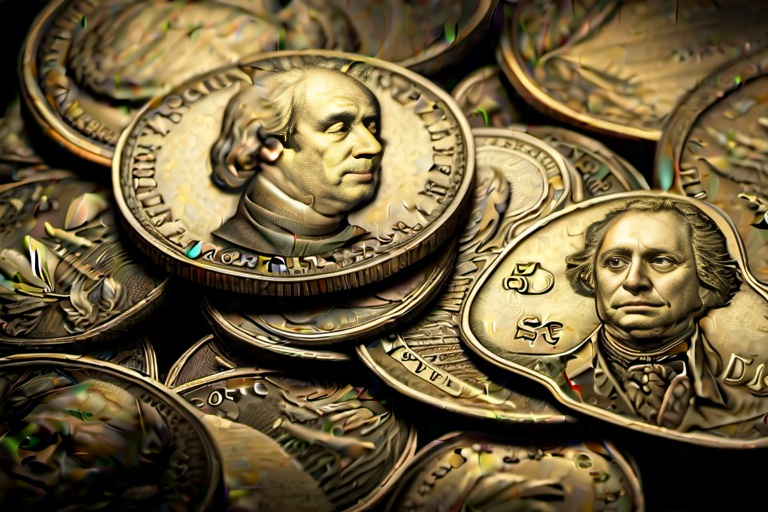Numismatics is the fascinating study and collection of coins, encompassing a wide range of specialties and areas of interest. As a field rooted in history and culture, numismatics is not only about the monetary value of coins but also about the stories they tell. By tracing the origins, circulation, and historical context of these tokens, collectors and specialists can unlock the rich tapestry of human civilization.
Numismatics is the fascinating study and collection of coins, encompassing a wide range of specialties and areas of interest. As a field rooted in history and culture, numismatics is not only about the monetary value of coins but also about the stories they tell. By tracing the origins, circulation, and historical context of these tokens, collectors and specialists can unlock the rich tapestry of human civilization.
The Tapestry of Numismatics: Categories and Collectors
Within the realm of numismatics, individuals can be categorized into three main groups: collectors, coin dealers, and scholar-researchers. Each group brings unique qualities to the field, enriching it with diverse knowledge and expertise.
Collectors: The Heart of Numismatics
Collectors, sometimes referred to as amateur scholars, are those who revel in the ownership and study of coins. Whether driven by fascination with a specific historical period or the sheer joy of discovery, collectors play a pivotal role in numismatics. Noteworthy among them was King Farouk I of Egypt, recognized for his vast coin collection, and Walter Breen, celebrated for his scholarly contributions despite not actively collecting.
Coin Dealers: The Industry Experts
Coin dealers, occasionally known as professional numismatists, are essential to the industry. They assess, authenticate, and assign grades to coins. Dealers act as commercial intermediaries, yet their impact on numismatics goes beyond transactions; they also contribute significantly to the understanding of numismatic history and economy.
Scholar-Researchers: The Academic Pillars
Scholars in public collections, universities, or independent research roles bring a depth of academic knowledge to numismatics. Coins are especially valuable for historical inquiry in pre-modern times, shedding light on economic systems and cultural exchanges. Scholars in this field might not have specific numismatic training but often come from related disciplines, such as classical studies or archaeology.
Educational Pathways in Numismatics
While formal education in numismatics is uncommon, several academic institutions weave numismatics into disciplines like classical studies or archaeology. Specialized academic qualifications and awards, like those from the Royal Numismatic Society, acknowledge scholarly achievements. The first United States PhD in Numismatics awarded to Donald H. Kagin in 1979 marks a milestone in academic recognition for this field.
Organizations and Societies in Numismatics
Diverse numismatic organizations around the world, including the American Numismatic Association and the International Numismatic Council, have established vast communities advocating for the study and appreciation of coins. They connect budding and experienced numismatists and facilitate the spread of numismatic knowledge and discoveries.
The Luminaries of Numismatics
Countless noteworthy figures have enriched the numismatic field with their dedication and knowledge. Pioneers like Lancillotto Castelli and Celestino Cavedoni have been instrumental in advancing the study and preservation of ancient coinage, while more contemporary experts, such as Elvira Clain-Stefanelli, have become leading authorities on coins of specific eras, such as Roman and Greek.
Biographies and encyclopedias dedicated to these numismatists offer in-depth reviews of their lives and contributions, preserving their legacies for future generations. They provide a comprehensive look at the myriad ways in which numismatists have propelled the field forward.
Global Reach and Cultural Exchange
Numismatics knows no national boundaries. There are British and Israeli societies, among others, which nourish a diverse and lively community of coin enthusiasts. The cross-cultural exchange of ideas and knowledge is a fundamental aspect of these organizations, enabling members to gain a broader perspective of numismatic studies around the globe.
Evolving Perspectives in Numismatics
As the study of numismatics continues to evolve, so does the understanding of coins as vital cultural and historical artifacts. Whether one is a seasoned collector or a newcomer to the hobby, the field presents endless opportunities for learning and enjoyment. Numismatics bridges the past and present, guiding enthusiasts through a world where every coin has a story waiting to be discovered.
The commitment and enthusiasm of numismatists are crucial to preserving our monetary heritage and enhancing our appreciation of history through the lens of coin collecting. Their collective impact underscores the significance of numismatics as a discipline that connects us to our ancestors and the economies they built.
Those exploring the numismatic landscape can uncover treasures within their collections, providing a tangible connection to epochs long gone. As this engrossing field burgeons, we remain propelled by the spirit of curiosity and a deep-seated appreciation for the tokens that have traversed history, offering insights into civilizations that have shaped our world. Dive into the world of coins and become part of a continuum of collectors, scholars, and enthusiasts who celebrate the enduring legacy of numismatics.
Information for this article was gathered from the following source.



